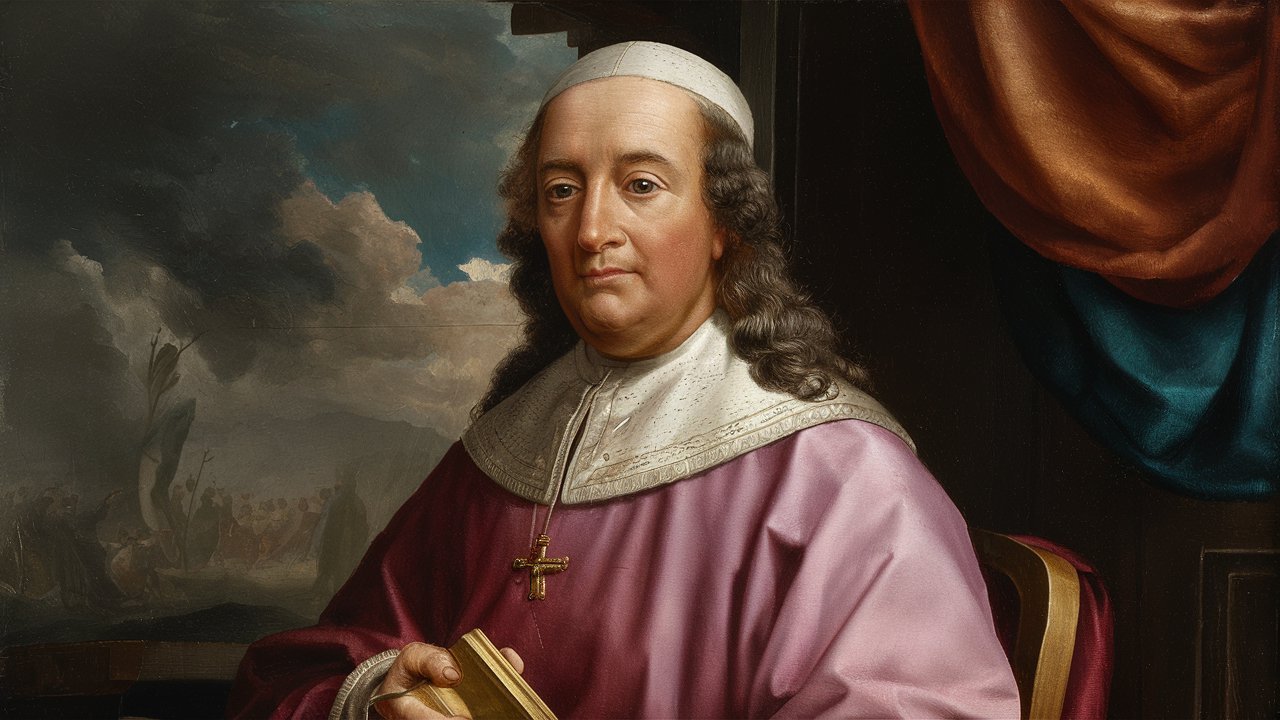
Ever wondered about the Benedictus? This ancient hymn, also known as the Song of Zechariah, holds a special place in Christian liturgy. But what makes it so significant? For starters, it’s a song of thanksgiving and prophecy, sung by Zechariah, the father of John the Baptist, after regaining his speech. Imagine being silent for months and then bursting into a song of praise! The Benedictus is often recited during morning prayers, especially in the Liturgy of the Hours. Why is it called the Benedictus? The name comes from its opening word in Latin, which means "blessed." Curious to learn more? Let's dive into 15 fascinating facts about this timeless hymn.
The Benedictus: An Overview
The Benedictus, also known as the Song of Zechariah, is a significant hymn in Christian liturgy. It is found in the Gospel of Luke and is often recited during morning prayers. Let's dive into some fascinating facts about this ancient hymn.
Origin and Context
Understanding the origin and context of the Benedictus helps appreciate its significance.
-
The Benedictus is found in the Gospel of Luke, specifically in Luke 1:68-79. It is a song of thanksgiving and prophecy spoken by Zechariah, the father of John the Baptist.
-
Zechariah sang the Benedictus after regaining his speech. He had been mute for months due to his disbelief in the angel Gabriel's message about his wife's pregnancy.
-
The name "Benedictus" comes from the Latin word for "blessed." The hymn begins with the phrase "Benedictus Dominus Deus Israel," meaning "Blessed be the Lord God of Israel."
Structure and Themes
The structure and themes of the Benedictus reveal its depth and purpose.
-
The Benedictus is divided into two main parts. The first part (verses 68-75) praises God for fulfilling His promises to Israel. The second part (verses 76-79) focuses on John the Baptist's role in preparing the way for Jesus.
-
A central theme of the Benedictus is salvation. Zechariah speaks of God's promise to save His people from their enemies and to show mercy to their ancestors.
-
Another important theme is prophecy. Zechariah prophesies that his son, John, will be a prophet of the Most High, preparing the way for the Lord.
Liturgical Use
The Benedictus holds a special place in Christian worship and liturgy.
-
The Benedictus is traditionally recited during morning prayers, known as Lauds, in the Liturgy of the Hours. This practice dates back to the early Christian church.
-
In the Anglican tradition, the Benedictus is often included in the service of Morning Prayer. It is sometimes sung as a canticle, a hymn-like passage from the Bible.
-
The hymn is also used in various other Christian denominations, including Roman Catholic, Lutheran, and Eastern Orthodox churches.
Musical Settings
The Benedictus has inspired many musical compositions throughout history.
-
Numerous composers have set the Benedictus to music. Johann Sebastian Bach, for example, included it in his Christmas Oratorio.
-
The hymn has been adapted into various musical styles, from classical to contemporary. This versatility highlights its enduring appeal.
-
In some traditions, the Benedictus is chanted in a plainchant style, a form of monophonic, unaccompanied sacred song.
Symbolism and Imagery
The Benedictus is rich in symbolism and imagery, enhancing its spiritual impact.
-
The hymn uses light and darkness imagery to convey spiritual truths. Zechariah speaks of the "tender mercy of our God" by which "the dawn from on high will break upon us."
-
The Benedictus also references the Abrahamic covenant. Zechariah praises God for remembering His holy covenant and the oath He swore to Abraham.
-
The imagery of a "horn of salvation" is used to symbolize strength and deliverance. This phrase reflects the Old Testament tradition of using horns as symbols of power and victory.
Final Thoughts on the Benedictus
The Benedictus holds a special place in both Christian liturgy and music. Its rich history and spiritual significance make it a cherished part of many religious traditions. From its origins in the Gospel of Luke to its musical adaptations by renowned composers, the Benedictus continues to inspire and uplift. Whether you're a history buff, a music lover, or someone seeking spiritual enrichment, the Benedictus offers something for everyone. Its timeless message of hope and redemption resonates across centuries, reminding us of the enduring power of faith and devotion. So next time you hear or sing the Benedictus, take a moment to appreciate its profound impact and the countless lives it has touched. This ancient canticle remains a beacon of light and inspiration in our modern world.
Was this page helpful?
Our commitment to delivering trustworthy and engaging content is at the heart of what we do. Each fact on our site is contributed by real users like you, bringing a wealth of diverse insights and information. To ensure the highest standards of accuracy and reliability, our dedicated editors meticulously review each submission. This process guarantees that the facts we share are not only fascinating but also credible. Trust in our commitment to quality and authenticity as you explore and learn with us.


